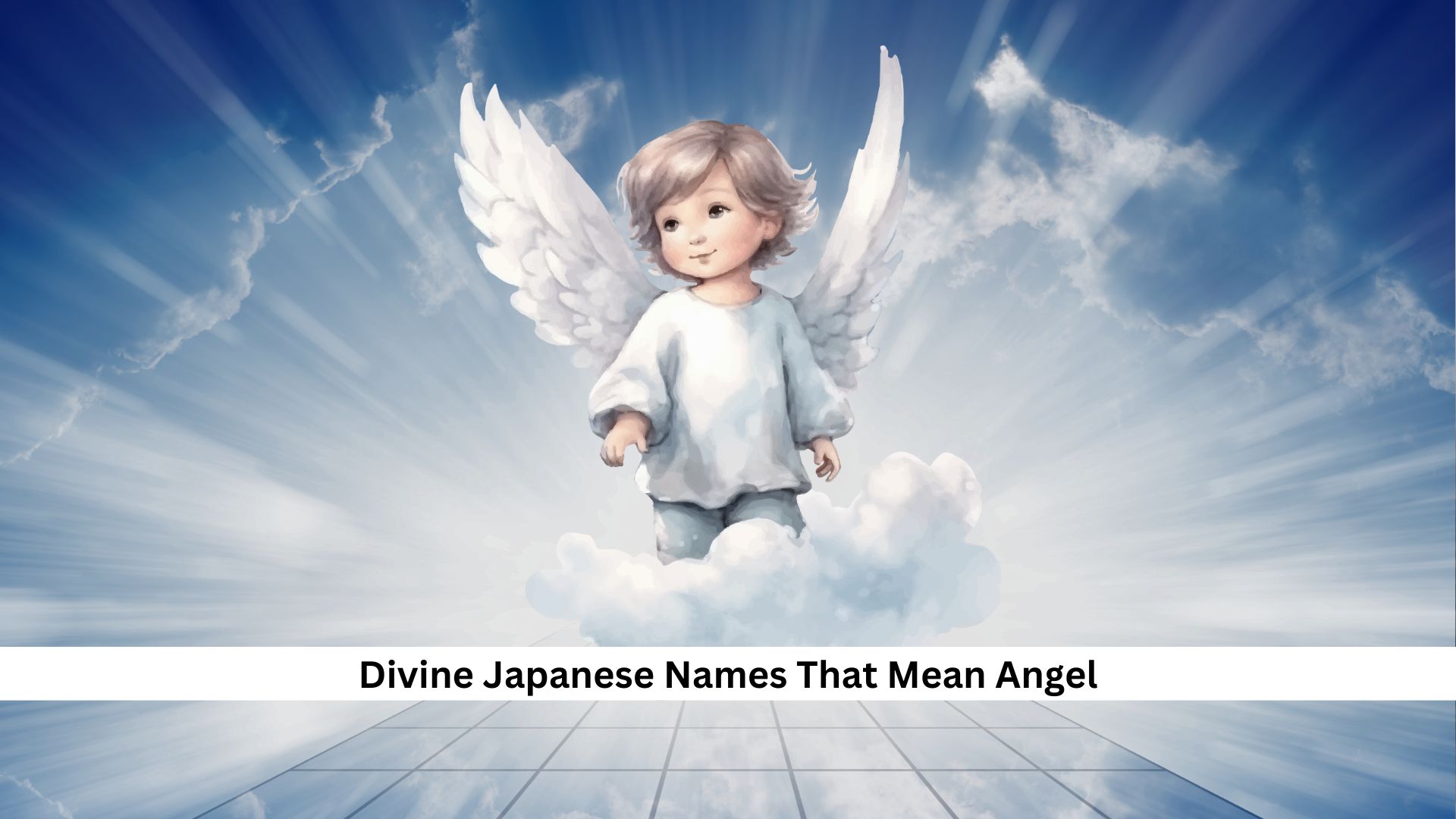Looking into what names mean in different cultures can tell us a lot about what people value and believe in. In Japan, names that mean ‘angel’ are really special. They reflect important qualities like protection, purity, and guidance, which are highly valued in Japanese culture. As we go through these 125 divine Japanese names, it’s interesting to think about how being named after angels might affect the people who carry these names and the community that values such heavenly qualities.
Divine Japanese Names That Mean Angel
Exploring Japanese names that mean ‘angel’ shows us a deep cultural appreciation for spiritual qualities. Take ‘Tenshi’, which means angel. It stands for purity and guidance, qualities highly valued in Japanese culture. These names are more than just tags; they carry hopes for the bearer to embody qualities like those of angels, including protection, beauty, and good morals. Parents pick these names hoping to give their children a touch of these admired traits.
Japanese Girls Names that Mean Angel
- Tenshi (天使) – Directly translates to “angel.”
- Maki – “True hope,” with “ma” meaning true and “ki” meaning hope.
- Megumi (恵) – Means “blessing,” often associated with the grace of an angel.
- Yurie (百合恵) – Lily blessing; lilies symbolize purity and are often linked to angelic beauty.
- Misaki (美咲) – Beautiful blossom; beauty akin to that of an angel.
- Sachiko – “Child of happiness,” combining “sachi” meaning happiness, and “ko” meaning child.
- Emiko (恵美子) – Blessed and beautiful child, reflecting the benevolence of angels.
- Reina (礼奈) – Graceful; embodies the grace often associated with angels.
- Haruka (遥香) – Distant fragrance; that evokes the ethereal and gentle presence of angels.
- Kiyomi (清美) – Pure beauty; reflects the purity and divine beauty of angels.
- Airi (愛莉) – Love and jasmine; gentle and angelic qualities.
- Sakura (桜) – Cherry blossom; purity and beauty like an angel.
- Hikari (光) – Light; angels are often seen as beings of light and goodness.
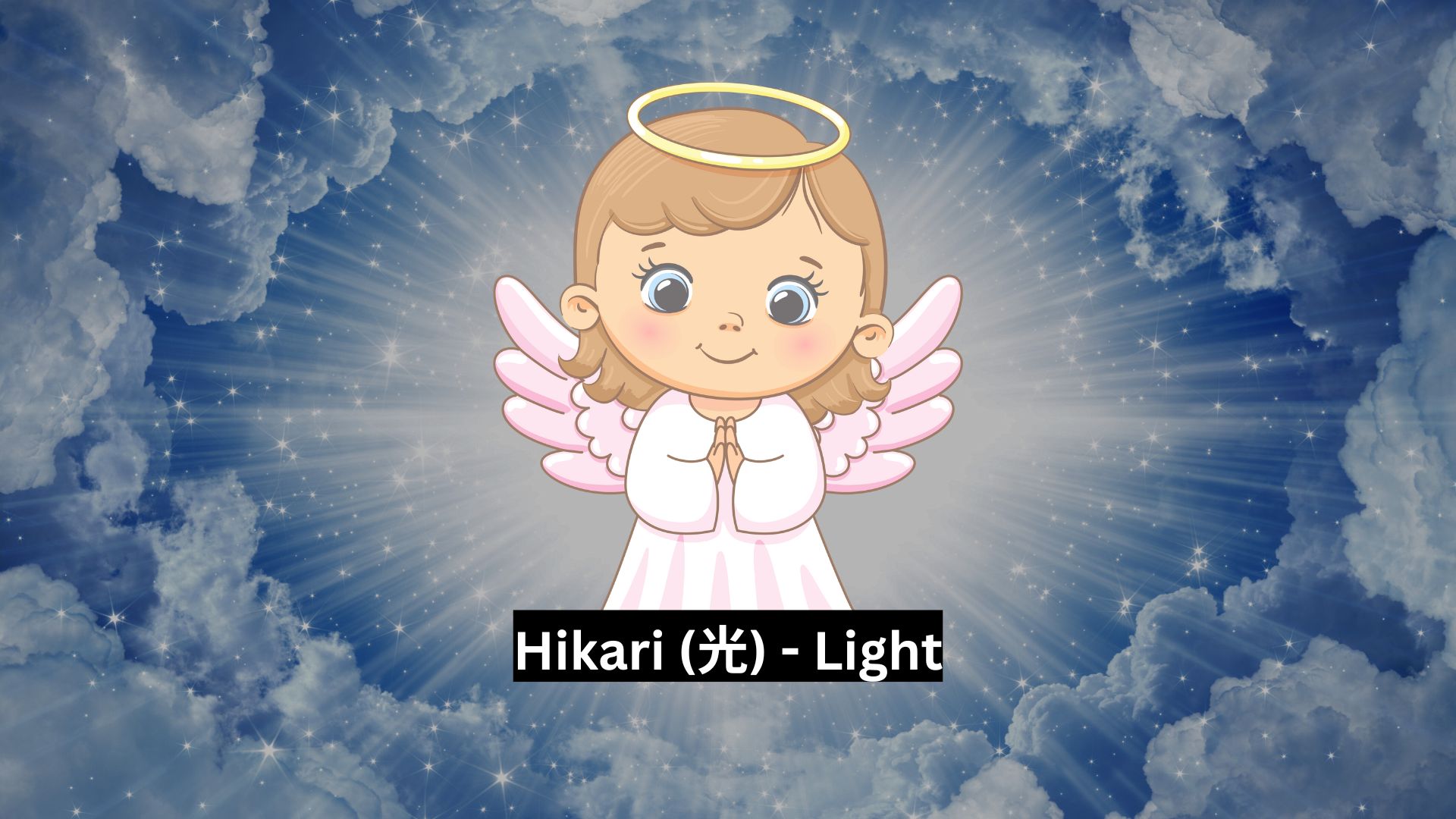
- Sayuri (小百合) – Little lily; lilies are symbolic of purity and angels.
- Yumeko (夢子) – Dream child; ethereal and otherworldly like an angel.
- Mika (美香) – Beautiful fragrance; delicate and angelic.
- Miyu (美優) – Gentle beauty; gentle like an angel.
- Mizuki – “Beautiful moon,” Having a pleasing appearance or attractive qualities like an angel.
- Yuna (優奈) – Gentle and graceful; qualities often attributed to angels.
- Rin (凛) – Dignified; has an angelic presence and serenity.
- Hanae (花恵) – Blessed flower; flowers are often symbols of purity and divinity.
- Mikako (美佳子) – Beautiful and excellent child; reflects angelic excellence.
- Shizuka (静香) – Quiet and fragrant; embodies the serene nature of angels.
- Hinako – “Child of light,” with “hina” meaning light and “ko” meaning child.
Japanese Boy Names that Mean Angel
- Tenshi (天使) – Directly translates to “angel.”
- Hiroki (裕樹) – Abundant joy; joy brought by the presence of angels.
- Reiji (礼治) – Well-mannered and governs; reflecting angelic virtues of guidance.
- Yuki (勇気) – Courage; angels often symbolize bravery and protection.
- Satoru (悟) – Enlightenment; angels as messengers of wisdom and enlightenment.
- Haruto (陽斗) – Sunlight; warmth and light like an angel.
- Kazuki (和希) – Peace and hope; qualities that angels bring.
- Riku (陸) – Land; steady and reliable like an angel.
- Kei (恵) – Blessing; directly relates to the blessings brought by angels.
- Aoi (葵) – Hollyhock; gentle nature is angelic.
- Takuya (拓也) – Pioneer; leading and guiding like an angel.
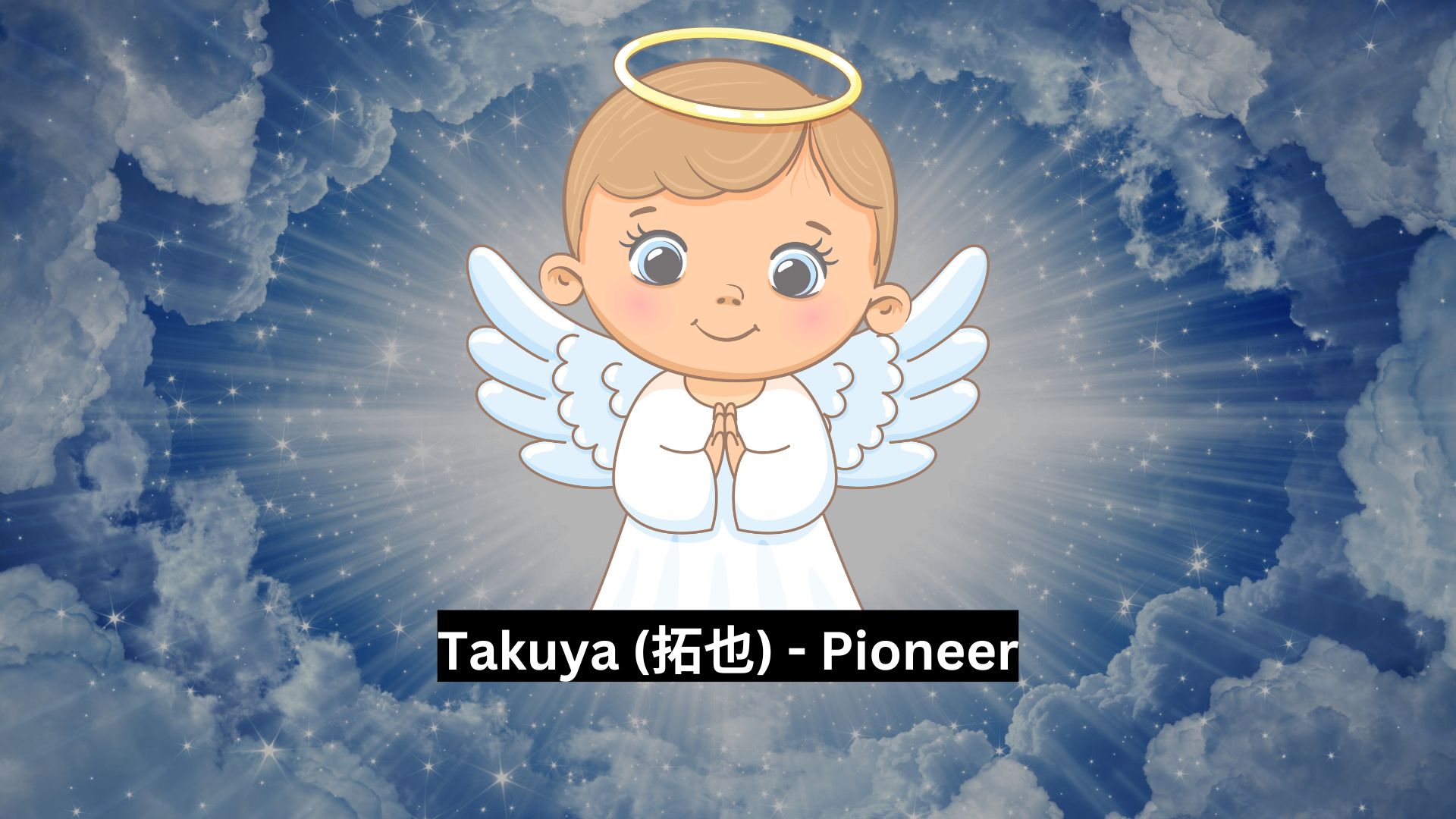
- Shinji (真司) – True and govern; angelic righteousness and guidance.
- Ren (蓮) – Lotus; purity and spiritual enlightenment, similar to angels.
- Takumi (巧) – Artisan; crafting goodness like angels.
- Masaki (正樹) – Righteous tree; strength and purity.
- Hikaru (光) – Light; angels are often depicted as beings of light.
- Yuuki (優希) – Gentle hope; hope brought by angels.
- Kaito (海斗) – Ocean star; vast and guiding like an angel.
- Sora (空) – Sky; free and expansive like an angel.
- Daiki (大輝) – Great radiance; brightness and light akin to an angel.
Japanese Names That Mean Fallen Angel
- Tenma (天魔) – Heavenly demon; an angel that has fallen from grace.
- Akuma (悪魔) – Demon; representing a fallen angel.
- Yami (闇) – Darkness; symbolizes the fallen state from light.
- Kurayami (暗闇) – Deep darkness; indicates the loss of light and grace.
- Kuro (黒) – Black; the absence of light, as with a fallen angel.
- Meian (明暗) – Light and dark; duality of a fallen angel.
- Kage (影) – Shadow; a figure of darkness, like a fallen angel.
- Ankoku (暗黒) – Darkness; represents the fall from grace.
- Riku (陸) – Land; grounded, no longer celestial.
- Inkou (陰光) – Hidden light; light obscured, like a fallen angel.
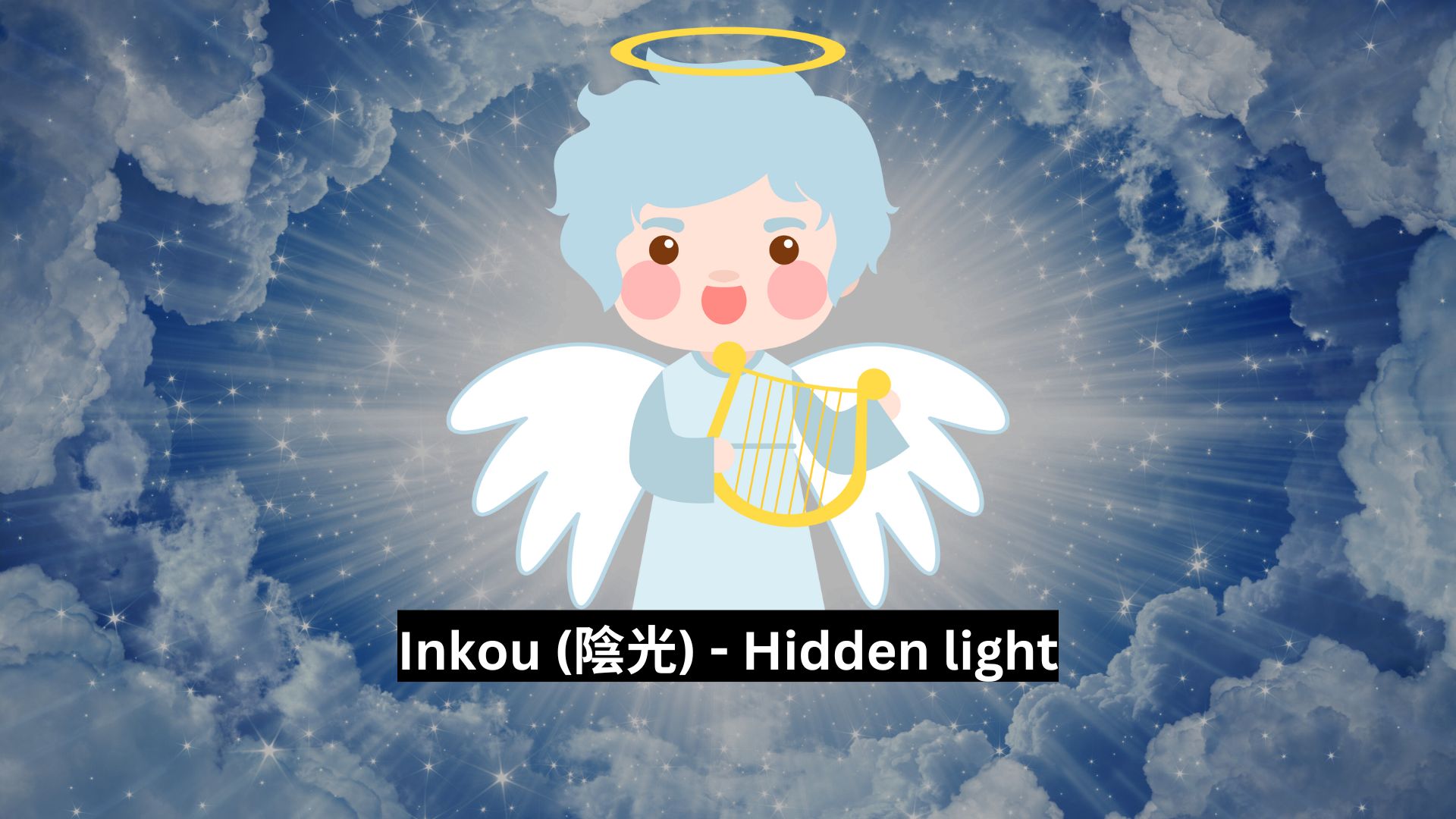
- Yoru (夜) – Night; the darkness where fallen angels dwell.
- Kuragari (暗がり) – Darkness; deep and consuming like a fallen angel.
- Aka (赤) – Red; symbolizing rebellion.
- Kurai (暗い) – Gloomy; reflecting the sorrow of a fallen angel.
- Kokutan (黒檀) – Ebony; deep black, symbolizing darkness.
- Rai (雷) – Thunder; powerful and foreboding, like a fallen angel.
- Yamiyo (闇夜) – Night of darkness; where fallen angels are believed to exist.
- Daku (ダーク) – Dark; straightforward and signifies a fallen angel.
- Hikage (日陰) – Shade; living in the shadows.
- Kuroi (黒い) – Black; symbolizing the loss of angelic light.
Also Read: 70+ Japanese Names That Mean Snow For Winter Babies
Japanese Names That Mean Dark Angel
- Yamiko (闇子) – Child of darkness; combining darkness with angelic presence.
- Kurohime (黒姫) – Black princess; angelic figure in darkness.
- Yamihiko (闇彦) – Prince of darkness; angelic yet dark.
- Ankou (暗黒) – Darkness; an angelic figure shrouded in darkness.
- Kagehime (影姫) – Shadow princess; an angelic figure in the shadows.
- Kurayami (暗闇) – Deep darkness; where dark angels dwell.
- Kurokami (黒髪) – Black hair; symbolic of dark beauty.
- Meian (明暗) – Light and dark; duality of dark angels.
- Kurayami (暗闇) – Deep darkness; signifying the domain of dark angels.
- Yoru (夜) – Night; the realm of dark angels.
- Kuragari (暗がり) – Darkness; deep and encompassing, like a dark angel.
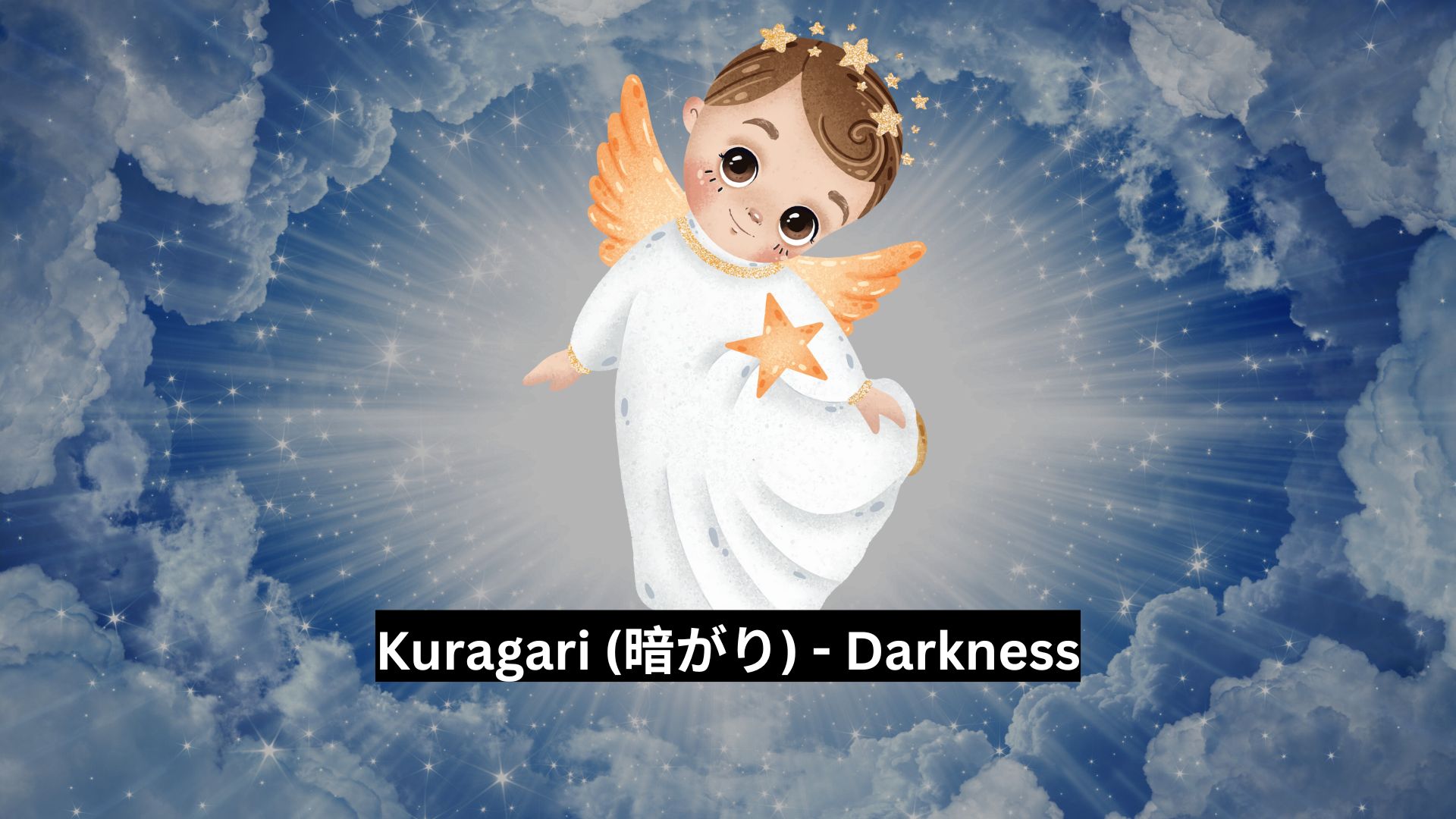
- Aka (赤) – Red; symbolizing the intense nature of dark angels.
- Kurai (暗い) – Gloomy; the aura of a dark angel.
- Kokutan (黒檀) – Ebony; deep black, representing dark angels.
- Rai (雷) – Thunder; the powerful presence of dark angels.
- Yamiyo (闇夜) – Night of darkness; the habitat of dark angels.
- Daku (ダーク) – Dark; straightforwardly indicating a dark angel.
- Hikage (日陰) – Shade; living in the shadow.
- Kuroi (黒い) – Black; symbolizing the essence of a dark angel.
- Yamino (闇の) – Of darkness; directly linking to a dark angel.
Japanese Names That Mean Angel of Death
- Shinigami (死神) – Death god; directly means “angel of death.”
- Reikon (霊魂) – Soul; often linked to the afterlife and death.
- Kage (影) – Shadow; an ominous presence like the angel of death.
- Ankou (暗黒) – Darkness; linked to the finality of death.
- Kurayami (暗闇) – Deep darkness; symbolizing the realm of death.
- Yomi (黄泉) – Underworld; the abode of the dead.
- Shinju (真珠) – Pearl; often seen as the soul’s purity after death.
- Meifu (冥府) – Hades; the underworld.
- Jigoku (地獄) – Hell; associated with death.
- Rai (雷) – Thunder; powerful like the angel of death.
- Akumu (悪夢) – Nightmare; the harbinger of fear and death.
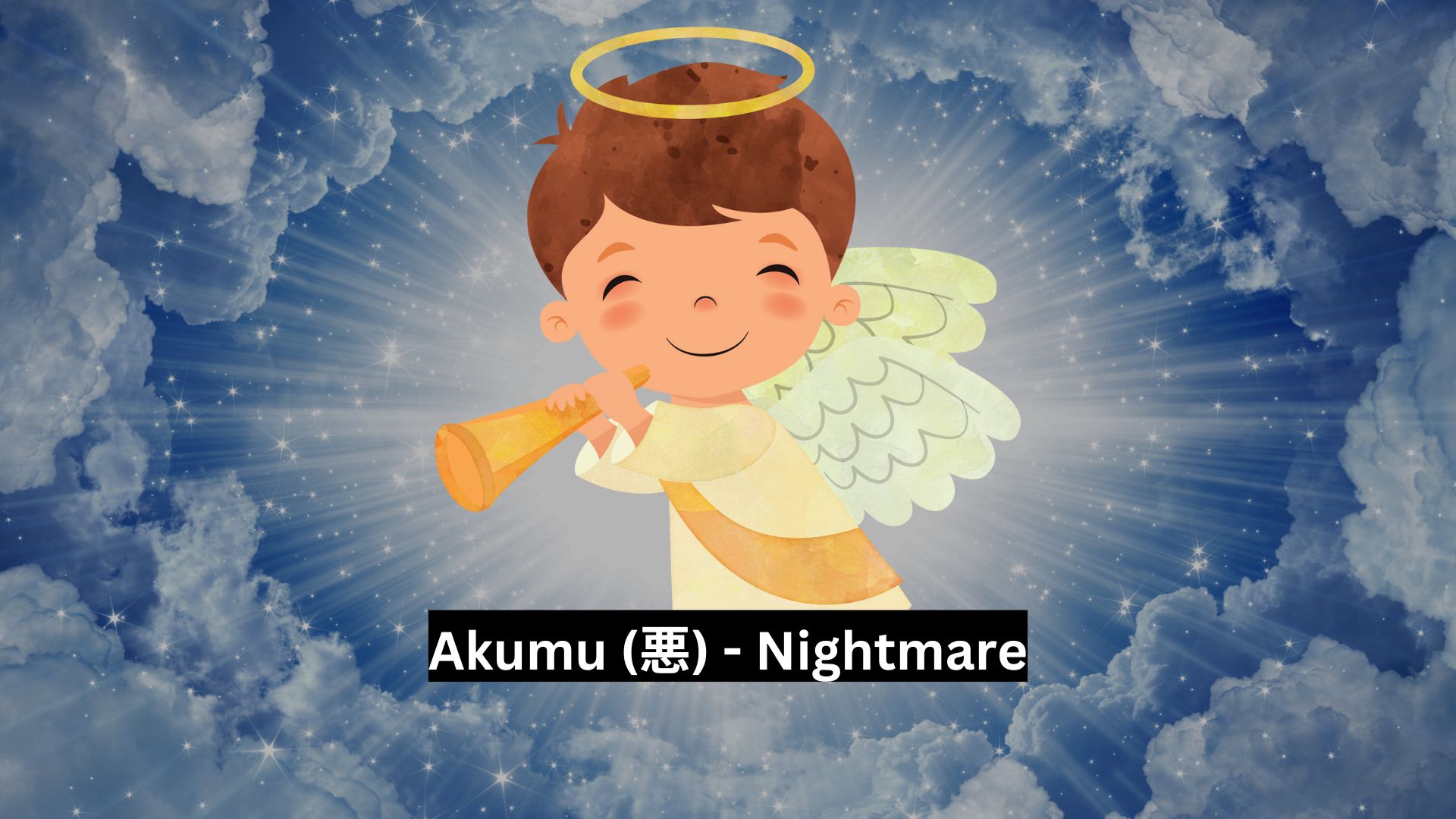
- Yoru (夜) – Night; often linked to death and the unknown.
- Shisha (使者) – Messenger (of death).
- Yurei (幽霊) – Ghost; spirits of the dead.
- Yomigaeru (蘇る) – To revive; the cycle of life and death.
- Kuro (黒) – Black; often associated with death.
- Mikage (御影) – Honorific shadow; the respectful form of darkness.
- Kurotsuki (黒月) – Black moon; ominous and final.
- Onryo (怨霊) – Vengeful spirit; linked to the dead.
- Inyou (陰陽) – Yin and yang; balance between life and death.
These names reflect the deep cultural and mythological connections in Japanese traditions, linking them to various aspects of angelic and spiritual realms.
Conclusion
The list titled ‘125 Divine Japanese Names That Mean Angel’ does more than just add to our cultural vocabulary. It highlights the deep values held by Japanese society. These names are packed with spiritual meaning and give parents a way to share their highest hopes for their children’s character and future. Each name reflects a continuing respect for angelic qualities and shows the deep cultural importance of spirituality and moral goals in Japan. Keep visiting The Jeep Diva for more such articles.

Sara Sabrena is an experienced content writer and a passionate movie fan. She loves analyzing movies and writes engaging reviews and in-depth analyses of films, from independent ones to big blockbusters. With her background in literature and media studies, Sara adds depth and her own unique viewpoint to her writing.

